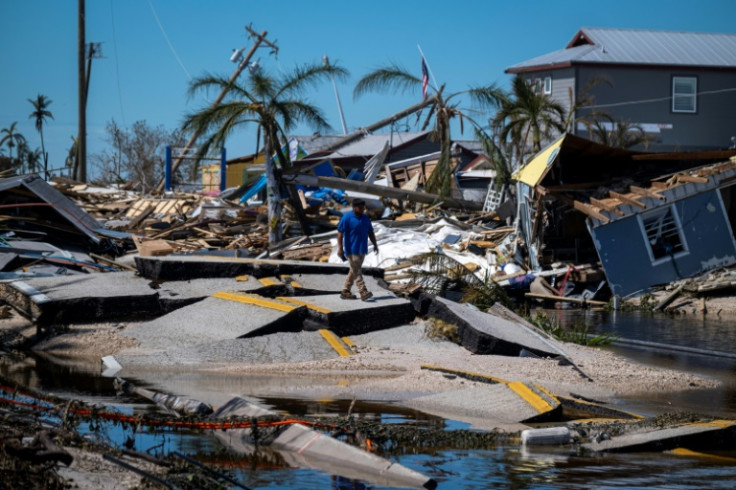
Jose Valverde, a Mexican immigrant, was surprised to receive a notice that his homeowner's insurance had doubled. Valverde, who came to Florida several decades ago, owns a single-family home in the Wellington section of West Palm Beach, Florida.
His monthly payment increased significantly from one moment to the next, as he was paying $4,000 a year for his homeowner's insurance which has doubled to $8,000. "This is a real robbery, and I am thinking of selling this property because I am almost paying two mortgages," he told The Latin Times.
Fernando Tovar, another Latino resident of Florida, is seriously considering moving to Georgia or South Carolina because he can no longer afford the state's high cost of auto and home insurance.
"I have twin 17-year-old daughters who got their driver's licenses, and my car insurance would go from $320 to $950 if I added them to the policy," he said to The Latin Times.
If Tovar decides not to include his twins, the Department of Motor Vehicles will likely notify the insurance companies, and they might force their users to report all the people who live in the same residence and have a driver's license. Tovar said none of his daughters currently drive, but even so, the insurance company forced him to sign an exclusion letter, and they might still penalize him.
Insurance costs is not the only issue Tovar is facing, besides food, clothing and basic stuff, additional expenses in housing also challenge his household.
"My landlord raised my rent from $1,900 to $2,500 this year for a 3-bedroom, 2-bathroom townhouse because he said taxes had gone up and insurance had doubled, so he passed the cost on to the tenant, which is me," Tovar said.
Florida's insurance rate increases have been the largest and fastest compared to other states in the country, up 57% since 2015, nearly three times the national average, according to the Insurance Information Institute. It predicts that only property insurance rates in Florida could increase by at least 40% by 2023.
Not only people flee the state
Insurance agents attribute the unprecedented price hikes in Florida insurance premiums for both auto and homeowners to several causes.
Awilda Almonte of Fiesta Auto Insurance in Lake Worth, Florida said in an interview that many insurance companies are slowly abandoning Florida due to a combination of factors such as excess claims, hurricanes, and flooding.
"What these companies are doing is raising the cost of premiums excessively to get customers to switch to other companies, and then they run out of customers until they pull out of the Florida market," she said.
"The vast majority of my clients are Latinos because I serve them in Spanish and they tell me that many friends and family members have decided to drive without insurance due to the exaggerated increase in premiums, but if the police stop them, they can take away their license and impose the corresponding fines," said Almonte.
"One of the reasons given by the insurance companies is the number of claims filed in Florida, many of which are abusive, including companies that have discovered people who claim to have been disabled while practicing outdoor sports," said Almonte.
Florida accounts for 9% of claims nationwide but 79% of homeowners insurance claims, according to the Insurance Information Institute.
Governor Ron DeSantis signed a bill last year aimed at reducing some of the litigation and lowering insurance costs, but many in the industry say it's not enough.
Insurer detractors accuse Florida politicians of representing the interests of insurance companies before the constituents who elected them and blame them for the lack of regulation to rein in insurers.
Homeowners' mortgages generally include the payment of the insurance policy, but those who have already paid off their property may waive the insurance policy or simply insure their home against fire and casualty but not against windstorms. This lowers the cost of the insurance ostensibly.
Marta Díaz, a Cuban immigrant who owns a home in the exclusive Flamingo Park area, told The Latin Times that she used to pay the mortgage apart from the insurance. Last year she was unable to pay the insurance and when the bank found out, it took out a $14,000 insurance policy on the property, which she now has to pay.
© 2025 Latin Times. All rights reserved. Do not reproduce without permission.




